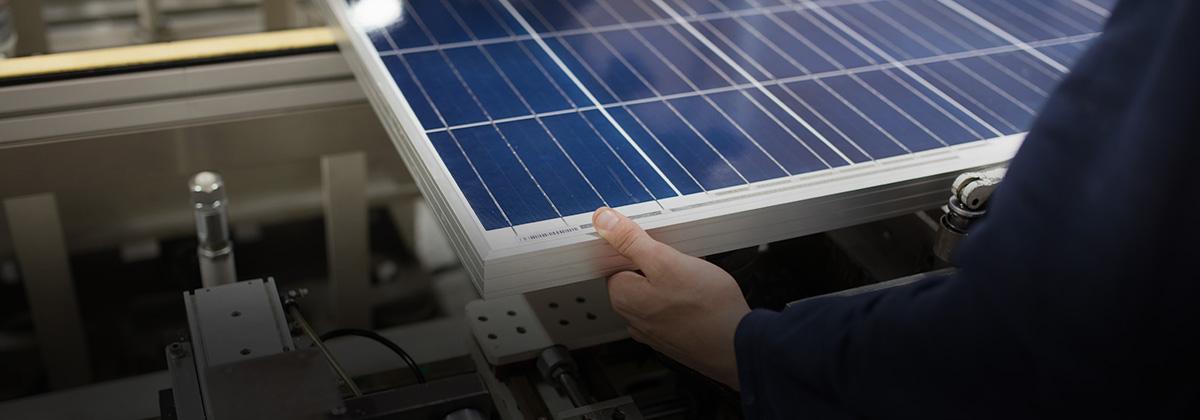More than a third of manufacturing businesses have made net zero a priority and already have a strategy in place. What role will maintenance engineering teams play in meeting climate commitments?
Much of the momentum required to achieve the climate targets agreed at COP27 will need to come from industry.
Economic fortunes have changed significantly since the COP26 targets were agreed, putting pressure on commitments to reduce climate change. Energy prices, inflation and interest rates are front and centre in boardrooms – but research shows that British manufacturers remain wedded to their net zero targets.
A report by the manufacturers’ organisation Make UK, published in May 2022, shows that economic shocks have not deflected businesses from their green ambitions. This is especially true of larger organisations with operations at multiple sites. The key findings of the report include:
● 65% of manufacturers have taken positive action towards their net zero targets since COP26.
● 35% of businesses have a fully formed net zero strategy in place and have started to implement it.
● 77% of companies said cutting energy costs was their main net zero focus within their factories.
● 48% of manufacturers are looking to make production processes more energy efficient.
The major focus on energy consumption means that maintenance engineers will have an important role in helping their organisations achieve their net zero goals.
Engineering the pathway to net zero
Maintenance engineering teams have a wide range of opportunities to reduce a manufacturing organisation’s energy consumption. This is no surprise when you realise that 50% of industrial energy waste is due to leaks, insulation and thermal loss. So what’s the most effective way to tackle this?
A comprehensive energy management strategy is central to greener manufacturing operations and production efficiency. This strategy needs to focus on energy efficiency in conversion, distribution and consumption.
Condition-based monitoring of machinery using connected digital sensors creates powerful data-driven insights. These are used to pinpoint sources of energy wastage and identify opportunities for cutting CO2 emissions.
“Increased energy consumption is frequently linked to maintenance issues”Richard Jeffers, Managing Director, RS Industria, RS Group
“Increased energy consumption is frequently linked to maintenance issues,” says Richard Jeffers, Managing Director for RS Industria at RS Group. “If electricity consumption goes up it can be caused by an electrical or mechanical fault on a machine or in a system. Monitoring energy use can be a leading indicator of an impending failure. If you get your energy monitoring right, you will have higher levels of availability on your plant as well.”
Regular maintenance for greener operations
While reducing carbon emissions as part of a net zero strategy is a relatively recent priority for manufacturing organisations, many of the mechanisms for doing so will be familiar to maintenance engineers.
“If you do maintenance engineering well, you are keeping your assets in the best condition and they’re running at maximum efficiency”Dr Moray Kidd, Maintenance Engineering Academic
“Some of the key metrics for maintenance engineering – availability, reliability and operational performance – are critical for reducing energy consumption,” says Dr Moray Kidd, Maintenance Engineering Academic. “If you do maintenance engineering well, you are keeping your assets in the best condition and they’re running at maximum efficiency. Operational expenditure is also more sustainable because you’re not changing components based on a preventative schedule. You’re changing them based on the condition.”
The enormity of the challenge of getting the world to net zero can seem overwhelming and it can be difficult to know where to start. Here are some simple steps you can take to score quick wins.
● Install LED lights that use up to 90% less energy. LED bulbs have a longer life.
● Reduce motor speeds by 20% to cut power consumption by up to 50%.
● Seal leaks from compressed air systems to reduce system run times.
● Commission an onsite energy-loss survey to help identify the most significant areas of wastage and opportunities to reduce energy consumption.
According to the UK Department of Energy & Climate Change, the average SME could reduce its energy bill by 18-25% by installing energy efficiency measures. It is estimated that 40% of these savings would require zero capital cost.
Long-term planning to tackle climate change
The business imperative to take action on climate change requires a long-term view and shows little sign of being deflected by economic headwinds.
Make UK’s research found that “9 out of 10 manufacturers plan further action on net zero”. A quarter of businesses see their net zero efforts as a driver of new commercial opportunities in high-value green markets.
Maintenance engineering teams will need to play a proactive role in meeting energy reduction targets that will add to the bottom line while reducing the industry’s impact on the climate.
For information on support RS can provide, please visit RS Maintenance Solutions here.





